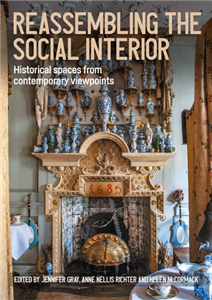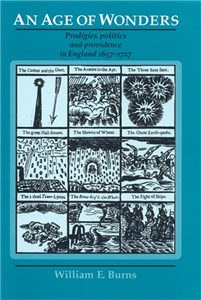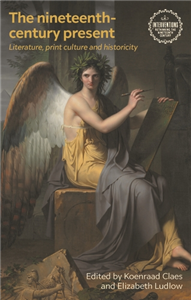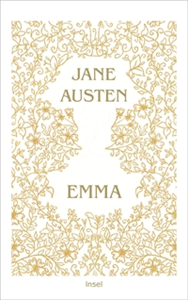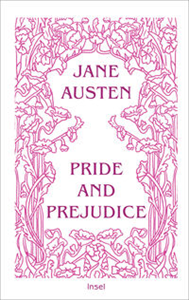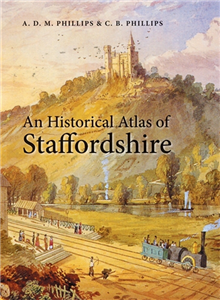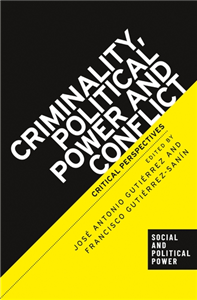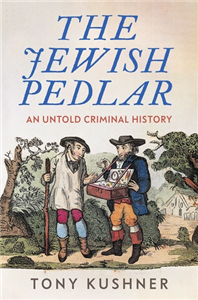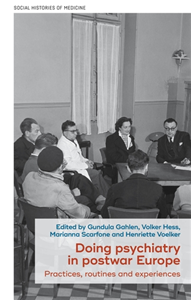Your Search Results
-
A Walk through History
A Walk Through History is a Russian publishing house specializing in children’s nonfiction. Since 2011 it has created and designed about 50 titles on various periods of history and other subjects such as mathematics, sport, plants and animals.
View Rights Portal
-
Promoted ContentFebruary 2005
Der kleine Papagei, der ganz allein den Wald retten wollte
Tiergeschichten aus dem Buddhismus
by Bringsvaerd, Tor Age; East, Stella / Übersetzt von Kronenberger, Ina
-
Promoted ContentHumanities & Social SciencesJune 2025
Reassembling the social interior
Historical spaces from contemporary viewpoints
by Helen McCormack, Jennifer Gray, Anne Nellis Richter
At the intersection of heritage, design history and contemporary art, this book offers new perspectives on the way historical interiors are encountered by, and viewed and presented for, present-day audiences. Many studies have highlighted the historical significance and meanings embedded in the landscape, architecture, decoration and objects to be found within houses and homes. But what about the social meanings of these spaces? Central to this book is the idea that in reflecting, remaking and reimagining historical interiors, the contributions of artists, designers and craftspeople should be foregrounded in constructing ideas of authenticity, transparency, and materiality in the making process. The chapters present a range of case studies that reflect upon on how historical interiors are remade and reimagined by looking in and out; at how a reassembling of spaces ought to avoid 'a shrinking definition of the social itself' (Latour, 2005). Surveying a range of interior 'types' from a number of historical periods, the book includes contributions from practitioners, scholars and makers. From digital reconstructions of a seventeenth-century Belgian constcamer to the interior and exterior worlds of specific historical figures, including Charles Rennie Mackintosh and Beatrix Potter, the book considers how these spaces have powerful significance for contemporary audiences, particularly in ways that are relatable to shared experiences of work, leisure, family, community, power and politics. This book will be of interest to scholars of the history of interiors and collections, museology, archaeology, architectural history, art, and design history, as well as curators and caretakers of historical sites, spaces and objects.
-
 Trusted Partner
Comparative politicsJuly 2013
Trusted Partner
Comparative politicsJuly 2013Abandoning historical conflict?
by Peter Shirlow, Jon Tonge, James McAuley, Catherine McGlyn
-
 Trusted Partner
2020
Trusted Partner
2020History of the German Language
A textbook for German studies; Part 1: Introduction, prehistory and history; Part 2: Old High German, Middle High German and Early New High German
by Wilhelm Schmidt, Edited by Dr. Elisabeth Berner and Prof. Dr. Dr. h.c. Dr. h.c. Norbert Richard Wolf
The 12th revised and updated version of the History of the German language – long regarded as an indispensable standard work for German Studies, has just been published. From now on, this comprehensive textbook on the history of the language is divided into two volumes. In addition to introducing questions about historical linguistics, the first volume provides a detailed account of the prehistory and history of German right up to the present day. Based on extensive source analyses, the focus is on aspects of culture and social history; only the chapters on the Indo-Germanic and Germanic language include key information about structural history. The second part contains concise, but readily understandable accounts of Old, Middle and Early New High German in terms of phonology, graphemics, morphology and syntax. Not only are synchronous descriptions given of the particular language period, but also the development of German language construction at all structural levels is explained. The association of grammatical synchrony and structural diachrony is a particular characteristic of this second part of Schmidt’s work on the history of language.
-
 Trusted Partner
Humanities & Social SciencesJune 2026
Trusted Partner
Humanities & Social SciencesJune 2026The Conservative Party and the Constitution
by Daniel Pitt
The Conservative Party and the Constitution examines the profound influence on Britain's constitutional framework over nearly two centuries. Through rigorous analysis, it traces how Tory leaders navigated parliamentary reform, devolution, and Brexit, balancing tradition with pragmatic adaptation. Drawing on exclusive interviews, archival records, and historical sources, the book reveals the Party's statecraft and offers fresh insights into the Conservatives' role in shaping modern governance. Essential for historians, political scientists, and those engaged with British politics, this study illuminates the dynamic interplay of power, ideology, and constitutional change, making it a vital contribution to understanding Britain's constitutional history.
-
 Trusted Partner
The ArtsJanuary 2019
Trusted Partner
The ArtsJanuary 2019Contemporary Spanish cinema
by Barry Jordan, Rikki Morgan-Tamosunas
Contemporary focus, right up to date with material from 1980s and 90s. Wide-ranging analyses of major directors, themes, genres and issues, including historical film, genre cinema, women in film and autonomies.
-
 Trusted Partner
Humanities & Social SciencesJanuary 2013
Trusted Partner
Humanities & Social SciencesJanuary 2013The annals of St-Bertin
Ninth-century histories, volume I
by Janet L. Nelson
The Annals of St-Bertin, covering the years 830 to 882, are the main narrative source for the Carolingian world in the ninth century. This richly-annotated translation by a leading British specialist makes these Carolingian histories accessible in English for the first time, encouraging readers to reassess and evaluate a crucially formative period of European history. Produced in the 830s in the imperial palace of Louis the Pious, The Annals of St-Bertin were continued away from the Court, first by Bishop Prudentius of Troyes, then by the great scholar-politician Archbishop Hinemar of Rheims. The authors' distinctive voices and interests give the work a personal tone rarely found in medieval annals. They also contain uniquely detailed information on Carolingian politics, especially the reign of the West Frankish king, Charles the Bald (840-877). No other source offers so much evidence on the Continental activities of the Vikings. Janet L. Nelson offers in this volume both an entrée to a crucial Carolingian source and an introduction to the historical setting of teh Annals and possible ways of reading the evidence. The Annals of St-Bertin will be valuable reading for academics, research students and undergraduates in medieval history, archaeology and medieval languages. It will also fascinate any general reader with an interest in the development of European culture and society.
-
 Trusted Partner
Humanities & Social SciencesApril 2010
Trusted Partner
Humanities & Social SciencesApril 2010An age of wonders
Prodigies, politics and providence in England 1657–1727
by William Burns, Kim Latham
Monstrous births, rains of blood, apparitions of battles in the sky - people in early modern England found all of these events to carry important religious and political meanings. In An age of wonders, available in paperback for the first time, William E. Burns explores the process by which these events became religiously and politically insignificant in the Restoration period. The story involves the establishment of early modern science, the shift from 'enthusiastic' to reasonable religion, and the fierce political combat between the Whigs and the Tories. This historical study is based on close readings of a variety of primary sources, both print and manuscript. Burns claims that prodigies lost their religious meaning and became subjects of scientific enquiry as a result of political struggles, first by the supporters of the restored monarchy and the Church of England against Protestant dissenters, and then by the Whig defenders of the Revolution of 1688 against the Tories and the Jacobites. By integrating religious and political history with the history of science, An age of wonders will be of great use to those working in the field of early modern history. ;
-
 Trusted Partner
Literature & Literary StudiesMay 2023
Trusted Partner
Literature & Literary StudiesMay 2023Pasts at play
Childhood encounters with history in British culture, 1750–1914
by Rachel Bryant Davies, Barbara Gribling
This collection brings together scholars from disciplines including Children's Literature, Classics, and History to develop fresh approaches to children's culture and the uses of the past. It charts the significance of historical episodes and characters during the long nineteenth-century (1750-1914), a critical period in children's culture. Boys and girls across social classes often experienced different pasts simultaneously, for purposes of amusement and instruction. The book highlights an active and shifting market in history for children, and reveals how children were actively involved in consuming and repackaging the past: from playing with historically themed toys and games to performing in plays and pageants. Each chapter reconstructs encounters across different media, uncovering the cultural work done by particular pasts and exposing the key role of playfulness in the British historical imagination.
-
 Trusted Partner
Literature & Literary StudiesJune 2025
Trusted Partner
Literature & Literary StudiesJune 2025The nineteenth-century present
Literature, print culture and historicity
by Koenraad Claes, Elizabeth Ludlow
The Nineteenth-Century Present explores the multiple ways in which history was understood, structured, and reassessed in literary, theological, and political contexts across the nineteenth century. While the scope of the book is wide, ranging from the representations of geological time and ancient history to the writing of the recent past, and covering the work of writers from Walter Scott to G.K. Chesterton, each chapter reveals how present concerns intrude on and shape every view of history. Ultimately, the collection emphasises that issues raised regarding historicity in recent methodological debates were already concerns in the nineteenth century.
-
 Trusted Partner
Trusted Partner
-
 Trusted Partner
Trusted Partner
-
 Trusted Partner
June 2025
Trusted Partner
June 2025Pride and Prejudice
Novel | Timeless classic in an elegant design with sprayed edges
by Jane Austen
Elizabeth Bennett and her four sisters are to be married off to men befitting their status. The handsome and wealthy Mr Darcy seems like he would make the perfect son-in-law and husband. But in a society where the marriage market is based less on feelings and more on status and wealth, love faces all kinds of obstacles ... Jane Austen is one of the most successful authors of all time. Ever since the publication of her first novel, Sense and Sensiblity, in 1811, she has captivated her readers, and to this day, her novels about the entanglements of love continue to inspire millions of people around the world.
-
 Trusted Partner
Humanities & Social SciencesMarch 2011
Trusted Partner
Humanities & Social SciencesMarch 2011An Historical Atlas of Staffordshire
by A. D. M. Phillips, C. B. Phillips
Within its ancient boundaries, Staffordshire is a county of diverse and contrasting historic landscapes. World-renowned industrial complexes sit alongside agricultural systems; castles rub shoulders with urban-industrial housing; the cathedral centre of a vast diocese lies close to the birthplace of primitive Methodism; overtly planned landscapes mingle with the uplands of the Moorlands and the heathlands of Cannock Chase. These many and varied landscapes are both products and reflections of a multiplicity of histories, and students of the county have been keen to explore and relate these pasts. However, no systematic attempt has previously been made to express these accounts in spatial form. This book seeks to demonstrate by maps the various histories that contribute to the diversity of Staffordshire. With its succinct discussions and detailed map presentations of these themes, incorporating new thinking and recent research, the atlas provides an innovative and major contribution to the study of the history of Staffordshire. ;
-
 Trusted Partner
Humanities & Social SciencesDecember 2025
Trusted Partner
Humanities & Social SciencesDecember 2025Criminality, political power and conflict
Critical perspectives
by José Antonio Gutiérrez Danton, Francisco Gutiérrez Sanín
In the aftermath of the greed vs. grievance debate and the new wars paradigm, the focus of conflict studies shifted decisively to understanding "predatory" behaviours as the raison d'etre of contemporary conflict. Conflict was viewed as a continuum in which the more you engage in criminal behaviour, the less political you are.This approach has been robustly criticised over the past 15 years; however, in the process, we have been left with unsuitable concepts to handle the complex interactions between civil war, political power and criminality. The departure point here is the understanding of politics and criminality as two historically differentiated domains of human activity. Different, but interrelated, often co-constitutive and overlapping. Here, we empirically and theoretically explore their interactions, connections, and convergences, not focusing solely on irregular actors, thus bringing back the State and elites into this debate.
-
 Trusted Partner
Humanities & Social SciencesMay 2025
Trusted Partner
Humanities & Social SciencesMay 2025The Jewish pedlar
An untold criminal history
by Tony Kushner
An imaginative investigation into a historical crime that sheds new light on Jewish history. In 1734 a pedlar turned smuggler named Jacob Harris slit the throats of three people in a pub in Sussex. This triple-murder, for which he was hanged and gibbeted, remains the most violent crime ever committed by a British Jew. Yet today it is all but forgotten. In The Jewish pedlar, Tony Kushner goes in search of the enigmatic Harris. Digging into a remarkable range of sources, from law records and newspaper reports to ballads and folktales, he follows the traces of Harris's legend across three hundred years of British history. In doing so, he reconstructs the world of Jewish pedlars and criminals across many continents. The lives these figures eked out at the margins of society paint a picture of persistent antisemitism - but also of remarkable integration. Intellectually bold and deeply humane, The Jewish pedlar takes a new, grassroots approach to the history of Jews in the modern world, shedding light on everyday lives from the Enlightenment to the Holocaust and beyond.
-
 Trusted Partner
Historical fiction
Trusted Partner
Historical fictionMADAME CLICQUOT AND THE HAPPINESS OF CHAMPAGNE
by Susanne Popp
Between self-realisation and love: the story of the woman behind the famous champagne brand Veuve Clicquot. The French champagne city Reims in 1805: despite resistance from her family, young widow Barbe-Nicole Clicquot takes over the champagne and wine production from her late husband - and turns out to be a talented winemaker. But it is the time of the Napoleonic Wars and business is not going well. Supported by her employee Louis Bohne and the German accountant Christian Kessler, Barbe-Nicole nevertheless manages to get her company started, develops a new production process and thus gives champagne its seductive tingle. Enchanted by her esprit, both men develop feelings for her - but it is only as a widow that Barbe-Nicole can run the company under her name ...
-
 Trusted Partner
Fiction
Trusted Partner
FictionHANSEATIC RADIANCE - A FAMILY SAGA SET IN HAMBURG
by Miriam Georg
A turbulent era. An impossible love affair. A moving saga. Hamburg 1886. Lily, whose father is a ship owner, dreams of becoming a writer. During a ship-naming ceremony, Lily gives a short speech during which her hat is blown off her head. One of the workers tries to get it back for her and is badly injured. Lily is shocked that no one sympathises with the young man’s fate. Then Johannes Bolten comes to the ship owner’s villa to demand compensation for his injured friend. Lily wants to help and allows herself to be drawn into a dangerous game of hide-and-seek. She begins a passionate affair with him. But Jo, who comes from the notorious gangland area, has a secret that Lily must never discover…
-
 Trusted Partner
Literature & Literary StudiesMarch 2025
Trusted Partner
Literature & Literary StudiesMarch 2025The Catholicism of literature in the age of the Book of Common Prayer
Poetry, plays, works, 1558-1689
by Thomas Rist
Offering a complete reading of English Literature throughout 1558-1689, this book demonstrates the continuity of Roman Catholicism in English Literature from the accession of Elizabeth I to the deposing of James II. Rist shows that poetry and plays promoted Roman Catholic ideas in a Biblicist age which established the Church of England through the Book of Common Prayer. From the very idea of literary works to chapters on the Eucharist, Purgatory, Christian worship and the Virgin Mary, Rist joins together major and minor authors of the era to present English Literature afresh. Important literary figures include William Shakespeare, Ben Jonson, Thomas Middleton, Queen Henrietta Maria, John Donne, John Dryden, Robert Herrick, Margaret Cavendish and Aphra Behn.
-
 Trusted Partner
MedicineMarch 2024
Trusted Partner
MedicineMarch 2024Doing psychiatry in postwar Europe
Practices, routines and experiences
by Gundula Gahlen, Henriette Voelker, Volker Hess, Marianna Scarfone
Doing psychiatry engages with the history of European psychiatry in the second half of the twentieth century through a close and fresh look at the practices that contributed to reshape the mental health field. Case studies from across Europe allow readers to appreciate how new 'ways of doing' contributed to transform the field, beyond the watchwords of deinstitutionalisation, the prescription of neuroleptics, centrality of patients and overcoming of asylum-era habits. Through a variety of sources and often adopting a small-scale perspective, the chapters take a close look at the way new practices emerged and at how they installed themselves, eventually facing resistance, injecting new purposes and contributing to enlarging psychiatry's fields of expertise, therefore blurring its once-more-defined boundaries.






